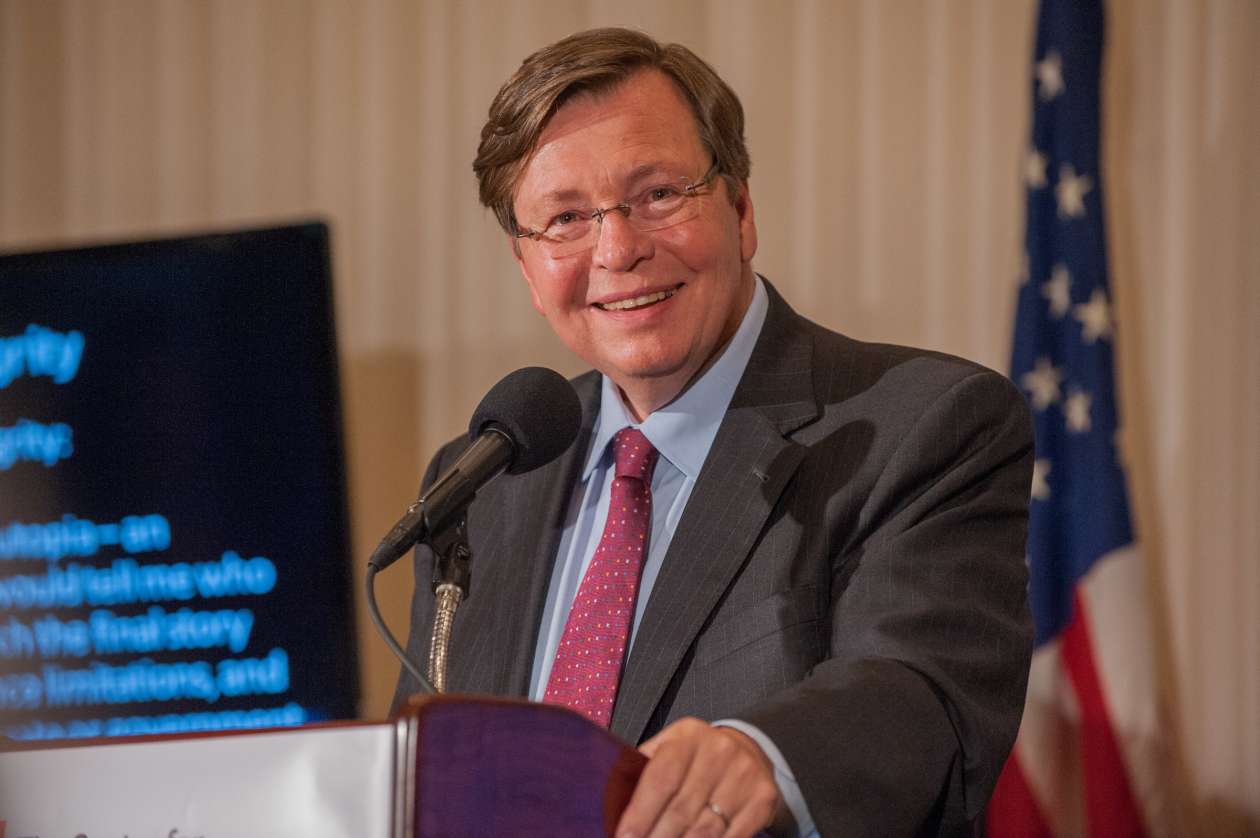Introduction
WASHINGTON, February 12, 2003 — A few days ago, the Center for Public Integrity obtained a copy of draft legislation that the Bush Administration has quietly prepared as a bold, comprehensive sequel to the USA Patriot Act. This proposed law would give the government breathtaking new powers to further increase domestic intelligence-gathering, surveillance and law enforcement prerogatives, and simultaneously decrease judicial review and public access to information.
We took the unprecedented (for us) step of posting the entire bill on our website. Why? Because democracy is supposed to be a contact sport, with many and diverse participants, and we quickly discovered that practically no one on Capitol Hill in either party or in the national news media had ever even heard of the Domestic Security Enhancement Act of 2003, much less read it. Senate inquiries about the likelihood of “Patriot II” legislation have been publicly and privately rebuffed for months, dozens of specific written questions to the Justice Department about implementation of the first Patriot Act simply never answered.
In a national crisis atmosphere of fear, paranoia and patriotism in the wake of September 11th, the Bush Administration introduced and got the Patriot Act enacted into law almost unanimously in just a few weeks, warp speed for Congress. The Senate Judiciary Committee had an hour and a half hearing in which Attorney General John Ashcroft testified but took no questions. In the House, meanwhile, there was no testimony from opponents of the bill.
So now, with troops amassing on the border of Iraq, we learn that for months the staff of Attorney General John Ashcroft has been secretly planning another tectonic shift in the historic constitutional balance between security and liberty, further encroachments against the hard-earned, legally protected, right-to-know about our government in this country. Was the Bush Administration waiting for the bombs bursting in Baghdad to spring this latest, urgent, national security legislation on the American people and Congress, another drive-by mooting of our customary democratic discourse and deliberative processes? I don’t know, but it is certainly not an unfair question to ask, given recent events.
What seemed to be merely self-serving shenanigans by the latest occupant of 1600 Pennsylvania Avenue in the months prior to September 11th actually now appears to have been the dawn’s early light of a wholesale assault on access to information in this country.
It was before the worst terrorist act on American soil that George W. Bush, in his last hours as governor of Texas, had his official records packed up and shipped to his father’s presidential library, attempting to remove them from the usual custody of the Texas State Library and Archives and the strong Texas public information law. Similarly, so was Vice President Richard Cheney’s refusal to release basic information about his meetings with energy company campaign contributors on government time and property. So was the secret Justice Department subpoena of Associated Press reporter John Solomon’s telephone records to attempt to learn the identity of a confidential source. The Reporters Committee found that “the Justice Department did not negotiate with Solomon or his employer, did not say why the reporter’s phone records were essential to a criminal investigation, and did not explain why the information could not be obtained any other way.”
In the immediate aftermath of 9/11, Ashcroft issued a chilling memorandum about the Freedom of Information, advising federal officials that “when you carefully consider FOIA requests and decide to withhold records, in whole or in part, you can be assured that the Department of Justice will defend your decisions unless they lack a sound basis or present an unwarranted risk of adverse impact on the ability of other agencies to protect other important records.” Just three weeks later, with no fanfare or public debate, President Bush signed Executive Order 13233, sharply restricting public access to the White House documents of former presidents, including Ronald Reagan and his father.
Within six months of the September 11 attacks, in no fewer than 300 separate instances, federal, state and local officials restricted access to government records by executive order or proposed new laws to sharply curtail their availability, according to the National Conference of State Legislatures.
Separately, in March 2002, The Washington Post reported that President Bush secretly had dispatched roughly 100 senior civilian officials from every Cabinet department and some independent agencies in a “shadow government” to live and work at two secret, fortified locations outside Washington. Bush reportedly implemented and maintained this classified “Continuity of Operations Plan” for half a year without notifying Congress or the American people. Bush acknowledged setting up the secret operation, which he said he had “an obligation as the President” to do “. . . This is serious business.”
So are secret trials and undisclosed detentions, DNA databanks and military tribunals, expanded computer and other government surveillance, renewed political spying by local police departments and preventing the Environmental Protection Agency from distributing health and safety information about chemical company facilities to the public. But now, with the full text online of the new Domestic Security Enhancement Act of 2003, perhaps there can actually be a public conversation about these measures.
I don’t know why this President and his appointees have such an unhealthy, Nixonian obsession with secrecy, such disdain for providing information to the public. Arrogantly stonewalling and stiff-arming entirely reasonable requests for information from Congress and journalists merely stoke the fires of skepticism, suspicion and distrust.
Abraham Lincoln once said, “I’m a firm believer in the people. If given the truth, they can meet any national crisis. The great point is to give them the real facts.” The Bush Administration needs to recall the advice of America’s most revered president, the first Republican to occupy and win re-election to the White House.
Read more in National Security
National Security
Commentary — The assault on liberty (continued)
The Bush Administration Pushes to Expand the Patriot Act

Join the conversation
Show Comments